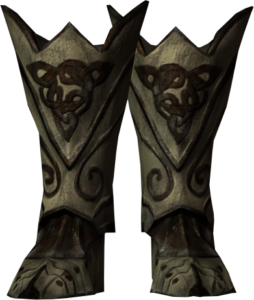I always thought the United Order and Consecration were the same thing. I’ve been reading a book called Great Basin Kingdom by Leonard Arrington (former church historian) and learned they are actually different. The basic difference to me seems to be that with Consecration, one gave all they owned to the church, and then were given back “what they needed.” With the United Order, it seems to have originated out of various economic cooperatives established to give fair, reasonable prices and jobs to the Mormons. In some cases, saints could choose to consecrate all their possessions to the United Order, but usually it worked more in an economic cooperative, where fair prices were established for Mormons. If they sold to gentiles, often the gentiles paid more.
 The United Order movement was an extension of cooperatives. These cooperatives began principally around 1868-1884, and were set up as a response to how current trading was accomplished. In chapter 10 (page 193-194), Arrington says,
The United Order movement was an extension of cooperatives. These cooperatives began principally around 1868-1884, and were set up as a response to how current trading was accomplished. In chapter 10 (page 193-194), Arrington says,
Structurally, most Mormon “cooperatives” were nothing more than joint-stock corporations, organized under the sponsorship of the church, with a broad basis of public ownership and support. Functionally, however, most Mormon cooperatives appear to have been motivated principally by welfare rather than profit; patronage was an act of religious loyalty; the church participated in the organization, operation, and financing of most o the important establishments; and the whole cooperative movement was permeated with an unmistakable pietistic zeal and feeling of religious obligation…
…most merchandising was in the hands of non-Mormons because of the stigma attached to “profiteering Saints,” and because of the inability of Mormon traders to refuse credit to their “brethren” and force payment of debts.
There was an interesting quote from Brigham Young explaining why Consecration didn’t work under Joseph Smith, and also why Joseph wasn’t a good, successful merchant. From page 83,
Let me give you a few reasons…why Joseph [that is the church] could not keep a store and be a merchant….Joseph goes to New York and buys 20,000 dollars’ worth of goods, comes into Kirtland and commences to trade. In comes one of the brethren, “Brother Joseph, let me have a frock pattern for my wife.” What if Joseph says, “No, I cannot without the money.” The consequence would be, “He is no Prophet.”…Pretty soon Thomas walks in. “Brother Joseph, will you trust me for a pair of boots?” “No, I cannot let them go without the money.” “Well,” says Thomas, “Brother Joseph is not Prophet; I have found that out, and I am glad of it.” After a while, in comes Bill and sister Susan. Says Bill, “Brother Joseph, I want a shawl, I have not got the money, but I wish you to trust me a week or a fortnight.” Well, brother Joseph thinks the others have gone an apostatized, and he didn’t know but these goods will make the whole Church do the same, so he lets Bill have a shawl. Bill walks off with it and meets a brother. “Well,” says he, “what do you think of brother Joseph?” “O he is a first-rate man, and I fully believe he is a Prophet. See here, he has trusted me this shawl.” Richard says, “I think I will go down and see if he won’t trust me some.” In walks Richard. “Brother Joseph, I want to trade about 20 dollars.” “Well,” says Joseph, “these goods will make the people apostatize; so over they go , they are of less value than the people.” Richard gets his goods. Another comes in the same way to make a trade of 25 dollars, and so it goes. Joseph was a first-rate fellow with them all the time, provided he never would ask them to pay him.” [sermon of October 9, 1851, JD, 1, 214-216]
Cooperatives turned out to be a real success, and there were several different implementations of them. Chapter 11 of the book gives some real interesting background as to these cooperatives turned into United Orders, as well as the different kinds of United Orders formed in Utah. The nationwide Panic of 1873 affected economies in Utah as well as nationwide. From page 323,
This co-operative movement,” said Brigham Young in 1869, “is only a stepping stone to what is called the Order of Enoch, but which is in reality the order of Heaven.” [See Brigham Young sermons in JH, October 6, 1850, October 8, 1855] In 1869 and succeeding years, sermon after sermon played upon the theme to unify and the necessity of extending the principle of cooperation to every phase of life.
From page 324,
The resources of ward members were pooled, and an attempt was made under the aura of religious sanction, to root out individualistic profit-seeking and trade and achieve the blessed state of opulent self-sufficiency and equality. This new order, recognized to be somewhat different from the law of consecration and stewardship, was called “The United Order of Enoch.” [This idea is taken from the city of Zion in the Pearl of Great Price.]
Since these orders developed separately, about 4 different kinds of orders existed. Page 330 starts talking about them.
First, there were St. George type orders in which persons in the community contributed all of their economic property to the Order and received differential wages and dividends depending upon their labor and the property contributed. Gains were achieved through the increased specialization of labor and the rationalization of agriculture by cooperative farming. However, in most of these communities a few residents failed to join, and this caused some practical problems which were not always satisfactorily resolved…
(page 331) A second type of United Order did not involve consecration of all of one’s property or labor, but contemplated an increase in the community ownership and operation of cooperative enterprises. This is the Brigham City plan, and was introduced in communities where the cooperative system was already widespread. Thus, the United Order was simply used as a device to reinforce and extend the cooperative network already in existence…
(page 332) A third type of United Order was essentially a modification of the Brigham City arrangement. Designed for wards in the larger cities of the territory-Salt Lake, Ogden, Provo, and Logan-a single cooperative or corporation was organized in each ward to promote some needed enterprise. All ward members were asked to participate in financing it. The theory seems to have been that, if economic reorganization was impossible because of a considerable number of Gentile residents, the wards could still contribute toward territorial self-sufficiency by initiating an industry whose products had been imported previously. Thus, while there would be little to create employment and develop the territory.
I mentioned this in my previous post, but let me summarize some ward projects:
- Hat factory
- Tailor’s shop
- Soap manufactory
- Boot and shoe shop
- Large foundry
- Machine shop
- Making agricultural tools
- Planning mill and woodworking shop
From page 333,
Perhaps the most interesting of the orders were those established on a communal plan. In some quarters this plan was called the Gospel Plan. Settlers contributed all their property to the community United Order, had no private property, shared more of less equally in the common products, and lived and ate as a well-established family. The best known of these was established at Orderville, Utah, but others functioned in Price City, Springdale, and Kingston, Utah; Bunkerville, Nevada; and in a number of newly founded Arizona settlements.
I talked previously about the pants episode, which comes from Orderville, which came from this communal arrangement. So, what do you think of these different orders? What do you think of Brigham’s statement regarding Joseph Smith? I honestly don’t think it would be any easier for us to live like this than it was for them. When people talk about how the people weren’t righteous enough to live consecration, it seems to imply that we’re more righteous than they were. I honestly don’t understand why we would make such an arrogant statement, because I think it would be extremely difficult. I’m impressed with these ideals, and their attempt to live this higher law.


